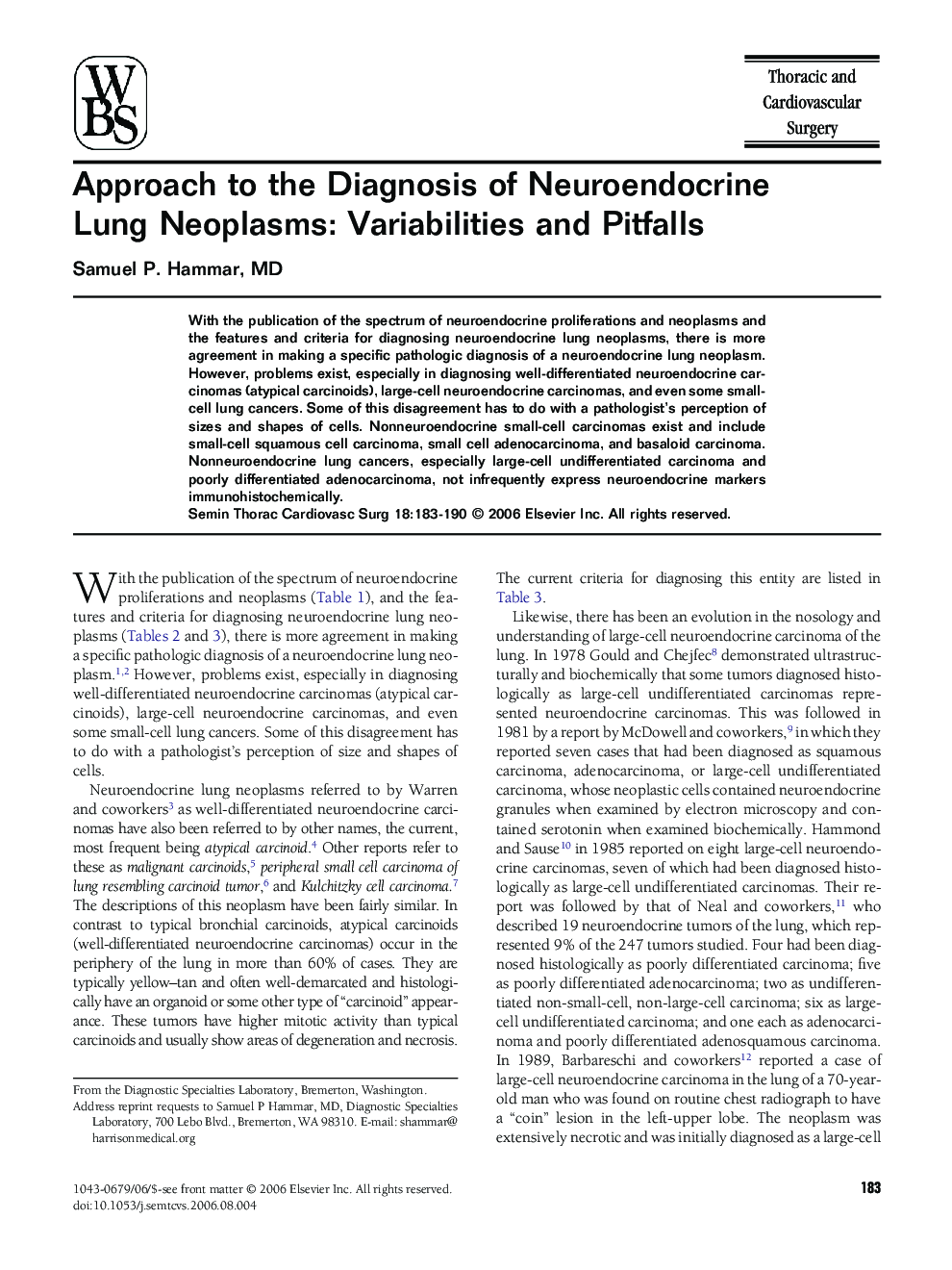| Article ID | Journal | Published Year | Pages | File Type |
|---|---|---|---|---|
| 3025816 | Seminars in Thoracic and Cardiovascular Surgery | 2006 | 8 Pages |
Abstract
With the publication of the spectrum of neuroendocrine proliferations and neoplasms and the features and criteria for diagnosing neuroendocrine lung neoplasms, there is more agreement in making a specific pathologic diagnosis of a neuroendocrine lung neoplasm. However, problems exist, especially in diagnosing well-differentiated neuroendocrine carcinomas (atypical carcinoids), large-cell neuroendocrine carcinomas, and even some small-cell lung cancers. Some of this disagreement has to do with a pathologist's perception of sizes and shapes of cells. Nonneuroendocrine small-cell carcinomas exist and include small-cell squamous cell carcinoma, small cell adenocarcinoma, and basaloid carcinoma. Nonneuroendocrine lung cancers, especially large-cell undifferentiated carcinoma and poorly differentiated adenocarcinoma, not infrequently express neuroendocrine markers immunohistochemically.
Related Topics
Health Sciences
Medicine and Dentistry
Cardiology and Cardiovascular Medicine
Authors
Samuel P. MD,
